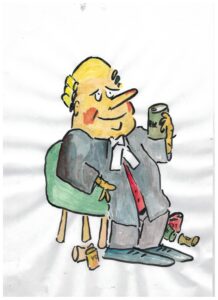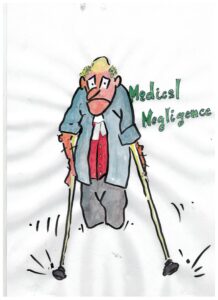Witness credibility (deceased estates)
- 2016-10-27
- By whiggs
- Posted in Other, Trusts & Trustee Law
(Source: Isin v Ozen [2016] NSWSC 1480)
It is plain that the credibility of witness evidence is critical (lets say determinative) in cases where conversations are alleged with a deceased (for want of a better word!).
There may or sometimes will usually be contemporaneous documents including where authenticity of such documents is not in issue.
What follows is some relevant considerations to keep in mind in how these conversations are assessed and effect creditibility.
Black J has recently repeated in Coyte v Norman; Centre Capital (Newcastle) Pty Ltd v B Scorer [2016] NSWSC 1242 at [9]:
“…the credibility of a witness and his or her veracity may be tested by reference to the objective facts proved independently of the testimony given, in particular by reference to the documents in the case, by paying particular regard to the witness’s motives and the overall probabilities”.
Where conversations are alleged with a party who is deceased, it was important to remember the principle expressed by Bryson AJ in Zahra v Francica [2009] NSWSC 1206 at [1] – [2]:
“In these proceedings the plaintiff makes claims against the deceased’s estate and the facts that he alleges depend for proof very largely upon his own evidence. In approaching his evidence and making findings on a matter he alleges, I bear in mind the need for careful scrutiny to which evidence in such a case should be subjected. This need is well established and was stated clearly by Isaacs J in Plunkett v Bull (1915) 19 CLR 544. Two more modern statements appear in the judgment of McLelland CJ in Eq in Eyota Pty Limited v Hanave Pty Limited (1994) 12 ACSR 785 at 789 in a passage which was cited with approval in the judgment of Sheller JA in Eggins v Robinson (2000) NSWCA 61 at [26]:
“… in a claim based on communications with a deceased person the Court will treat uncorroborated evidence of such communications with considerable caution, and will regard as of particular significance any failure of the claimant to bring forward corroborative evidence which was, or ought to have been, available.”
A clear re-statement of the principle showing its continuing applicability was made by Sheller JA in Eggins v Robinson ,see particularly pars [26] to [28] inclusive. Powell JA agreed with Sheller JA and Meagher JA reached the same conclusion although without referring to these authorities. It should be remembered that as appears in Sheller JA’s par [28] observations in the High Court of Australia in Neat Holdings Pty Limited v Karajan Holdings Pty Limited (1992) 67 ALJR 170 at 171 show that the standard of proof is not affected, and the relevant standard is proof on the balance of probabilities.”
Further, Bryson J had said in Day v Couch [2000] NSWSC 230 at [9]:
“Where a claim is made against the estate of a deceased person and knowledge of the facts on which the claim is based is no longer available to the legal personal representative of the deceased, judicial experience requires a careful approach to fact-finding, although there are no special rules relating to the burden or to the standard of proof: “[I]n cases of this sort the Court scrutinizes very carefully a claim against the estate of a deceased person. It is not that the Court looks on the plaintiff’s case with suspicion and as prima facie fraudulent, but it scrutinises the evidence very carefully to see whether it is true or untrue”: Plunkett v Bull [1915] HCA 14; (1915) 19 CLR 544 at 548-549 per Isaacs J. In Birmingham v Renfrew [1937] HCA 52; (1937) 57 CLR 666, which related to mutual wills, there were also expressions of caution: see per Latham CJ at 674 and Dixon J at 681-682. See too Grundel v The Registrar General(1990) BPR 97-340 at11,219 per McLelland J. These observations do not establish any legal standard of proof differing from the ordinary civil standard relating to the balance of probabilities, and there is no legal requirement for corroborative evidence.”
As was stated by Hallen J in Isin v Ozen [2016] NSWSC 1480 these principles need to be considered where conversations involve a deceased.
SEARCH BLOG POSTS
LATEST BLOG POSTS
- Updated product safety mandatory reporting guidance for suppliers now available
- Pleading fraud – cause and effect is essential
- Does the Trustee’s right of indemnity have priority over the right of beneficiaries in relation to assets?
- Rules of war (in a nutshell) | The Laws Of War
- MH370 Final Report
Past Blog Posts
- December 2021
- September 2021
- August 2021
- May 2021
- April 2021
- March 2021
- August 2020
- February 2020
- September 2019
- February 2019
- December 2018
- July 2018
- April 2018
- December 2017
- May 2017
- February 2017
- December 2016
- November 2016
- October 2016
- September 2016
- August 2016
- April 2016
- March 2016
- October 2015
- September 2015
- August 2015
- May 2014
- April 2014
- March 2014
- January 2014
Categories
- Appeals
- Artificial Intelligence
- Aviation law
- Banking and Finance Law
- Blogs
- Civil Liability Act
- Class Actions
- Coding for lawyers
- common law
- Consumer Claims (TPA)
- Contract Law
- Contractual Interpretation
- Criminal law
- Deeds
- Docassemble
- duty of care
- Engineering Law
- Equity
- Evidence
- Exclusion Clauses
- Execution of documents
- Expert Witness
- featured
- Financial Services
- Fraud
- Fundraising (Chapter 6D)
- General comment
- Home Building Law
- Insurance
- Legal drafting
- Local Court
- Medical Negligence
- MH370
- Motor Accidents
- Negligence
- Occupiers negligence
- Other
- Personal Injury
- Personal Property Securities (PPSA)
- Pleading
- Practice & Procedure
- Products Liability
- Property
- Real Property
- Reasons for a decision
- Securitisation
- Security (Mortgages & Charges)
- Sentencing
- Swaps & Derivatives
- Teaching
- Transactional Law
- Transfer of financial assets in transactions
- Trusts & Trustee Law
- Uncategorized
- War and Weaponry
- Witnesses
SEARCH BLOG POSTS
LATEST BLOG POSTS
- Updated product safety mandatory reporting guidance for suppliers now available
- Pleading fraud – cause and effect is essential
- Does the Trustee’s right of indemnity have priority over the right of beneficiaries in relation to assets?
- Rules of war (in a nutshell) | The Laws Of War
- MH370 Final Report
Past Blog Posts
- December 2021
- September 2021
- August 2021
- May 2021
- April 2021
- March 2021
- August 2020
- February 2020
- September 2019
- February 2019
- December 2018
- July 2018
- April 2018
- December 2017
- May 2017
- February 2017
- December 2016
- November 2016
- October 2016
- September 2016
- August 2016
- April 2016
- March 2016
- October 2015
- September 2015
- August 2015
- May 2014
- April 2014
- March 2014
- January 2014
Categories
- Appeals
- Artificial Intelligence
- Aviation law
- Banking and Finance Law
- Blogs
- Civil Liability Act
- Class Actions
- Coding for lawyers
- common law
- Consumer Claims (TPA)
- Contract Law
- Contractual Interpretation
- Criminal law
- Deeds
- Docassemble
- duty of care
- Engineering Law
- Equity
- Evidence
- Exclusion Clauses
- Execution of documents
- Expert Witness
- featured
- Financial Services
- Fraud
- Fundraising (Chapter 6D)
- General comment
- Home Building Law
- Insurance
- Legal drafting
- Local Court
- Medical Negligence
- MH370
- Motor Accidents
- Negligence
- Occupiers negligence
- Other
- Personal Injury
- Personal Property Securities (PPSA)
- Pleading
- Practice & Procedure
- Products Liability
- Property
- Real Property
- Reasons for a decision
- Securitisation
- Security (Mortgages & Charges)
- Sentencing
- Swaps & Derivatives
- Teaching
- Transactional Law
- Transfer of financial assets in transactions
- Trusts & Trustee Law
- Uncategorized
- War and Weaponry
- Witnesses




